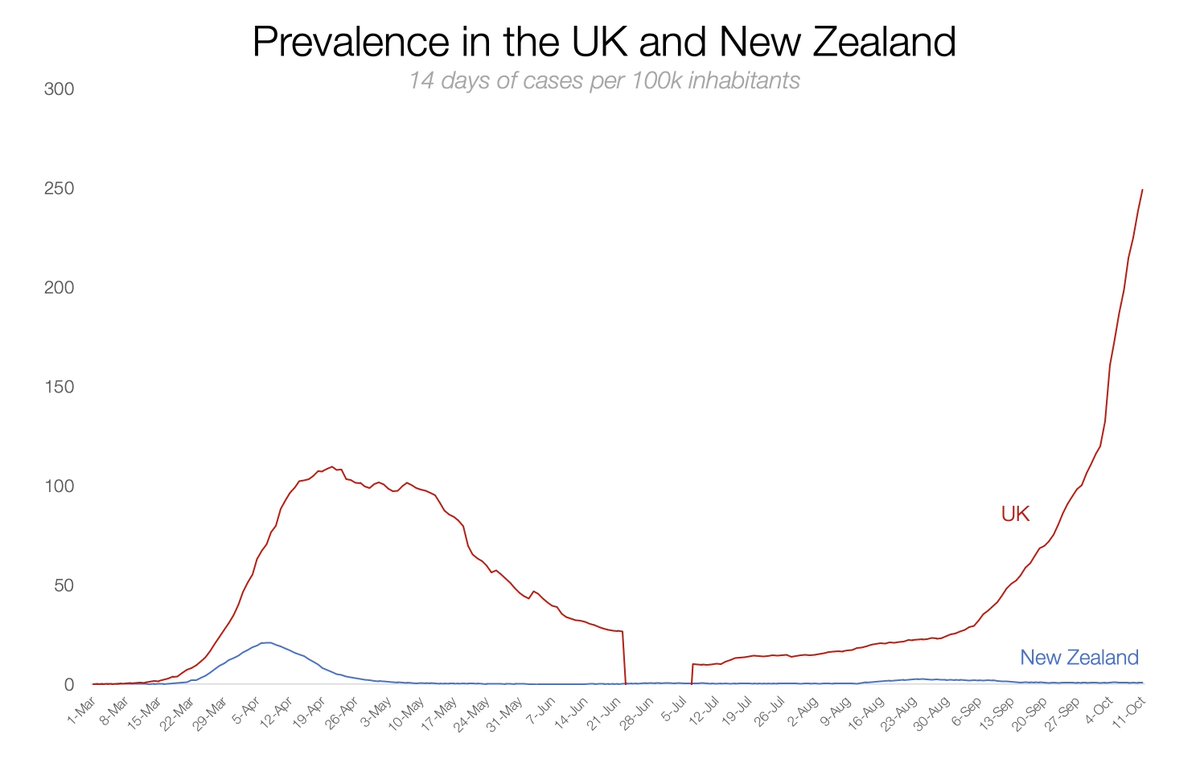
The question that puzzles me the most about the #coronavirus: Why has Latin America had so many more infections and deaths than Africa?
This is prevalence (active cases/100k ppl)
~14x lower in Africa on average
[1/
This is prevalence (active cases/100k ppl)
~14x lower in Africa on average
[1/

The main driver is probably not the measurement of either cases or deaths, since there are many countries in both regions, and their counting is probably similar on average. The Fatality Rate is broadly comparable too.
[3/8]
[3/8]

So why did they simply have fewer cases?
Is it geography? Both of them are broadly equatorial.
Peru was close to the equator and still had lots of deaths and cases, so proximity to the equator can't be it.
[4/8]
Is it geography? Both of them are broadly equatorial.
Peru was close to the equator and still had lots of deaths and cases, so proximity to the equator can't be it.
[4/8]

Is it share of urban population?
It looks like it's a strong factor. Africa (50%) is substantially less urban than Latin America 80% ). And on a country-by-country basis, you can see a clear pattern.
The more urban a country, the higher the all-time cumulative prevalence.
[5/8]
It looks like it's a strong factor. Africa (50%) is substantially less urban than Latin America 80% ). And on a country-by-country basis, you can see a clear pattern.
The more urban a country, the higher the all-time cumulative prevalence.
[5/8]

It does seem like there's something else, because for the same level of urbanization, LatAm countries tend to have more cases than African countries, on average.
[6/
[6/

So what else us special about Africa?
Is there good analyses on this topic?
What are some other potential good reasons?
[8/8]
Is there good analyses on this topic?
What are some other potential good reasons?
[8/8]
• • •
Missing some Tweet in this thread? You can try to
force a refresh










